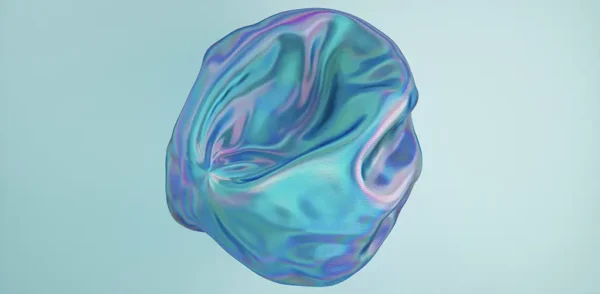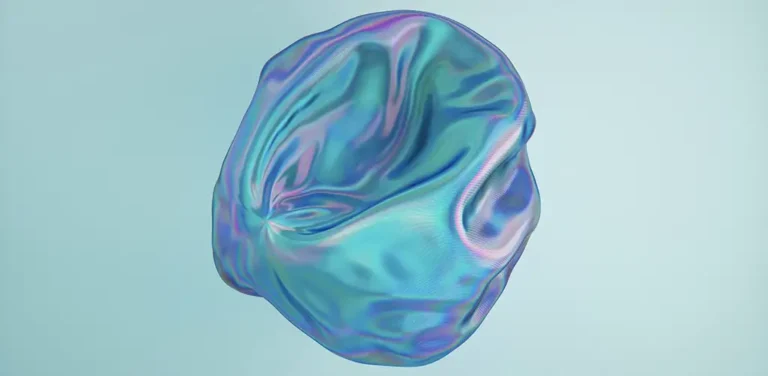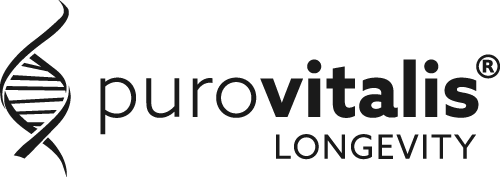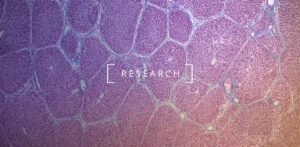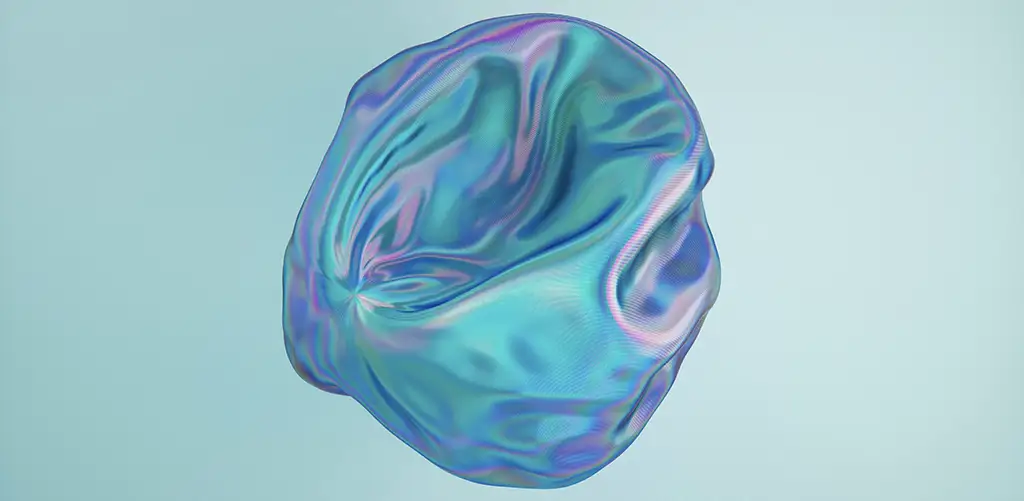
table of contents
- What is autophagy?
- Autophagy benefits: Why cellular clean-up matters
- Fasting and autophagy: How skipping meals cleans your cells
- When does autophagy start?
- Autophagy and senescence: A complex relationship
- Can senescent cells be cleaned up or repaired by autophagy?
- What promotes autophagy? Lifestyle factors and more
- Autophagy and longevity: The science
- FAQs on autophagy
“aw-TAH-fuh-jee”
pronunciation
What is autophagy?
Autophagy is your body’s built-in cellular clean-up crew. It’s a natural process where cells break down and recycle their own damaged parts—think of it as spring cleaning at the microscopic level. This process is essential for maintaining cellular health, removing dysfunctional proteins and organelles, and ensuring your cells run efficiently. During autophagy, cells form special structures called autophagosomes that engulf unwanted cellular debris, which are then broken down and recycled for energy or to build new cellular components. This self-renewal is vital for health, longevity, and disease prevention[1].
Autophagy benefits: Why cellular clean-up matters
| Benefit | Effect |
|---|---|
| Cellular Rejuvenation | By removing damaged parts, autophagy helps cells function better and live longer. |
| Disease Prevention | Autophagy protects against neurodegenerative diseases and infections. |
| Longevity | Studies in animals show that increased autophagy is linked to longer lifespans and healthier aging. |
| Metabolic Health | Autophagy supports healthy metabolism and may help prevent obesity and diabetes.[2,3] |
Fasting and autophagy: How skipping meals cleans your cells
One of the most powerful ways to trigger autophagy is through fasting. When you fast, your body senses a lack of nutrients and activates autophagy to recycle internal resources for energy.
This shift usually happens once glycogen stores in the liver are depleted and the body begins to rely more on fat for fuel. In this energy-conserving mode, cells ramp up internal clean-up to remove damaged components and repurpose them—essentially turning waste into fuel and repair material.
Different fasting methods like time-restricted eating (as for example the 16:8 fasting method), alternate-day fasting, or periodic 24–48 hour fasts can all stimulate autophagy to varying degrees, depending on individual metabolism, activity level, and overall health.
Not only does this support cellular health, but it may also reduce inflammation, improve insulin sensitivity, and contribute to longevity through better cellular resilience[4,5].
When does autophagy start?
| Hours fasted | Autophagy activity |
|---|
| 0–12 | Baseline (low) |
| 12–16 | Begins to increase |
| 16–24 | Moderate activation |
| 24–48 | Peak activation |
| 48+ | May plateau or decline |
Autophagy doesn’t switch on instantly when you skip a meal. Research suggests that autophagy begins to ramp up after about 12–16 hours of fasting, with peak activity often occurring between 24–48 hours, depending on individual metabolism and activity levels[6].
Does lemon water break autophagy?
A common question is whether lemon water breaks autophagy. The answer: plain lemon water (without sugar or calories) is unlikely to significantly disrupt autophagy, as the process is mainly sensitive to caloric intake. However, adding sugar or honey would provide energy and could reduce autophagic activity.
Autophagy vs apoptosis: What’s the difference?
Both are essential for health, but autophagy is about repair and renewal, while apoptosis is about removal.Together, they play a key role in maintaining cellular balance and supporting longevity[11,12].
Definition Autophagy
Autophagy is the process of cleaning and recycling parts within a living cell—think of it as maintenance.
Definition Apoptosis
Apoptosis is programmed cell death, where the entire cell is dismantled and removed when it’s no longer needed or is damaged beyond repair.
Senescent cells: Can autophagy clean up or repair them?
Cellular senescence is a state where cells stop dividing and enter a permanent arrest, often as a response to stress, DNA damage, or aging. Senescent cells accumulate with age and contribute to tissue dysfunction, chronic inflammation, and age-related diseases. They are characterized by the secretion of inflammatory factors known as the senescence-associated secretory phenotype – SASP.
What is SASP?
SASP (senescence-associated secretory phenotype) refers to the substances released by senescent cells, including inflammatory signals and proteins. These can damage surrounding tissue and contribute to chronic inflammation and age-related diseases.
Autophagy and senescence: A complex relationship
Autophagy and cellular senescence are intimately linked. Autophagy can both suppress and promote senescence, depending on the context:
Anti-senescence role:
Autophagy helps prevent the onset of senescence by removing damaged proteins and organelles, maintaining cellular homeostasis. In muscle stem cells, for example, basal autophagy is essential to keep cells in a healthy, quiescent state and prevent them from becoming senescent. When autophagy is impaired, these cells accumulate damage and enter senescence. Remarkably, restoring autophagy in aged stem cells can reverse senescence and rejuvenate their regenerative capacity.
Pro-senescence role:
In some contexts, autophagy can facilitate the establishment of senescence, particularly by supporting the synthesis of SASP factors. For instance, during oncogene-induced senescence, autophagy provides the building blocks for the production of SASP proteins, reinforcing the senescent state.
Cell fate decisions:
The interplay between autophagy, senescence, and apoptosis is regulated by stress signaling pathways such as p38α. P38α is a type of protein kinase—a signaling molecule inside cells that helps control how the cell responds to stress, inflammation, and damage.
In short
Autophagy and cellular aging are closely connected. Autophagy can help prevent cells from becoming senescent (old and inactive), but in some cases, it can also support the senescent state. When autophagy works well, it keeps cells healthy and youthful.
Can senescent cells be cleaned up or repaired by autophagy?
Prevention and reversal:
Autophagy is most effective at preventing cells from becoming senescent in the first place. In some cases, reactivating autophagy in aged or damaged stem cells can reverse senescence and restore function.
Clearance:
While autophagy can help maintain tissue health by preventing the accumulation of senescent cells, the actual removal of established senescent cells often requires immune system involvement or targeted therapies (senolytics). However, enhancing autophagy may reduce the burden of senescent cells indirectly by improving overall cellular quality control.
What are Senolytics?
Senolytics are compounds that help remove senescent cells. By clearing these cells, senolytics may reduce chronic inflammation, improve tissue health, and support healthy aging. Early research shows promise for age-related diseases like heart disease and dementia. Examples include natural compounds like quercetin, among others.
What promotes autophagy? Lifestyle factors and more
Intermittent fasting:
The most effective non-genetic trigger for autophagy. Try 16:8 or 24-hour fasts for optimal results.
Exercise:
Physical activity, especially aerobic exercise, stimulates autophagy in muscles and other tissues.
Ketogenic diet:
Low-carb, high-fat diets mimic fasting and can promote autophagy.
Caloric restriction:
Eating fewer calories without malnutrition is a proven way to boost autophagy and extend lifespan in animal studies.
Certain compounds:
Substances like curcumin (from turmeric) and resveratrol may also enhance autophagy, though more research is needed.
Autophagy and longevity: The science
Recent studies show that autophagy is not just associated with, but necessary for, healthy aging and lifespan extension. In animal models, boosting autophagy leads to longer, healthier lives, while blocking it accelerates aging and disease. Intermittent fasting, which increases autophagy, is linked to reduced inflammation, improved metabolic health, and greater longevity. [22, 23]For a deep dive into how fasting supports healthy aging, check out our guide: Effects of intermittent fasting: Health and aging guide
FAQs on autophagy
| Question | Answer |
|---|---|
| What is autophagy? | Autophagy is the body’s way of cleaning out damaged cells and recycling their parts for new use. |
| How do you pronounce autophagy? | aw-TAH-fuh-jee. |
| When does autophagy start during fasting? | Typically after 12–16 hours of fasting, with peak activity at 24–48 hours. |
| Does lemon water break autophagy? | No, plain lemon water without calories is unlikely to break autophagy. |
| What’s the difference between autophagy and apoptosis? | Autophagy is cellular clean-up; apoptosis is programmed cell death. |
| Can autophagy clean up senescent cells? | Autophagy can prevent and sometimes reverse senescence in certain cell types, especially stem cells, but established senescent cells are usually cleared by the immune system or targeted therapies. Enhancing autophagy supports overall cellular health and may reduce the accumulation of senescent cells. |
Explore more here:
- Effects of intermittent fasting: Health and aging guide
- Caffeine and intermittent fasting: A cheat or a hack?
- Understand Mitophagy: Your Body’s Defense Against Aging
References
- Mizushima N, Levine B, Cuervo AM, Klionsky DJ. Autophagy fights disease through cellular self-digestion. Nature. 2008;451(7182):1069–75.
- Glick D, Barth S, Macleod KF. Autophagy: cellular and molecular mechanisms. J Pathol. 2010;221(1):3–12.
- Levine B, Kroemer G. Autophagy in the pathogenesis of disease. Cell. 2008;132(1):27–42.
- Bagherniya M, Butler AE, Barreto GE, Sahebkar A. The effect of fasting or calorie restriction on autophagy induction: A review of the literature. Ageing Res Rev. 2018;47:183–97.
- de Cabo R, Mattson MP. Effects of intermittent fasting on health, aging, and disease. N Engl J Med. 2019;381(26):2541–51.
- Alirezaei M, Kemball CC, Flynn CT, Wood MR, Whitton JL, Kiosses WB. Short-term fasting induces profound neuronal autophagy. Autophagy. 2010;6(6):702–10.
- Mattson MP, Longo VD, Harvie M. Impact of intermittent fasting on health and disease processes. Ageing Res Rev. 2017;39:46–58.
- Martinez-Lopez N, Tarabra E, Toledo M, Garcia-Macia M, Sahu S, Coletto L, et al. System-wide benefits of intermeal fasting by autophagy. Cell Metab. 2017;26(6):856–71.
- Gudden J, Arias Vasquez A, Bloemendaal M. The effects of intermittent fasting on brain and cognitive function. Nutrients. 2021;13(9):3166.
- Anton SD, Moehl K, Donahoo WT, Marosi K, Lee SA, Mainous AG, et al. Flipping the metabolic switch: understanding and applying the health benefits of fasting. Obesity (Silver Spring). 2018;26(2):254–68.
- Galluzzi L, Vitale I, Abrams JM, Alnemri ES, Baehrecke EH, Blagosklonny MV, et al. Molecular definitions of cell death subroutines: recommendations of the Nomenclature Committee on Cell Death 2012. Cell Death Differ. 2012;19(1):107–20.
- Mariño G, Niso-Santano M, Baehrecke EH, Kroemer G. Self-consumption: the interplay of autophagy and apoptosis. Nat Rev Mol Cell Biol. 2014;15(2):81–94.
- Mitchell SJ, Bernier M, Mattison JA, Aon MA, Kaiser TA, Anson RM, et al. Daily fasting improves health and survival in male mice independent of diet composition and calories. Cell Metab. 2019;29(1):221–8.
- Madeo F, Zimmermann A, Maiuri MC, Kroemer G. Essential role for autophagy in life span extension. J Clin Invest. 2015;125(1):85–93.
- García-Prat L, Martínez-Vicente M, Perdiguero E, Ortet L, Rodríguez-Ubreva J, Rebollo E, et al. Autophagy maintains stemness by preventing senescence. Nature. 2016;529(7584):37–42.
- Nakamura S, Yoshimori T. Autophagy and longevity. Mol Cells. 2018;41(1):65–72.
- Rubinsztein DC, Mariño G, Kroemer G. Autophagy and aging. Cell. 2011;146(5):682–95.
- Kang HT, Lee KB, Kim SY, Choi HR, Park SC. Autophagy impairment induces premature senescence in primary human fibroblasts. PLoS One. 2011;6(8):e23367.
- Menzies FM, Fleming A, Caricasole A, Bento CF, Andrews SP, Ashkenazi A, et al. Autophagy and neurodegeneration: pathogenic mechanisms and therapeutic opportunities. Neuron. 2017;93(5):1015–34.
- Fernández ÁF, Sebti S, Wei Y, Zou Z, Shi M, McMillan KL, et al. Disruption of the beclin 1–BCL2 autophagy regulatory complex promotes longevity in mice. Nature. 2018;558(7708):136–40.
- Hansen M, Rubinsztein DC, Walker DW. Autophagy as a promoter of longevity: insights from model organisms. Nat Rev Mol Cell Biol. 2018;19(9):579–93.

Track 50+ health metrics with AI-powered accuracy. Start your free trial today and take control of your wellness journey!

longevity tips best exercises nutrition diets healthy lifestyle
The art of living well a life that’s not measured by years alone, but by experiences, health, and joy!
